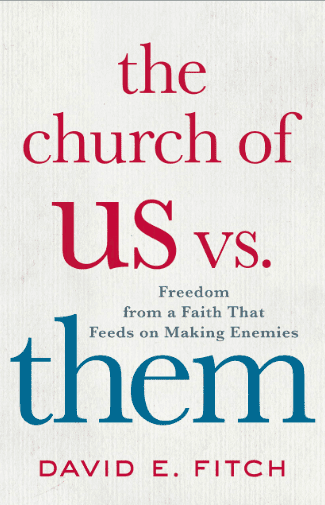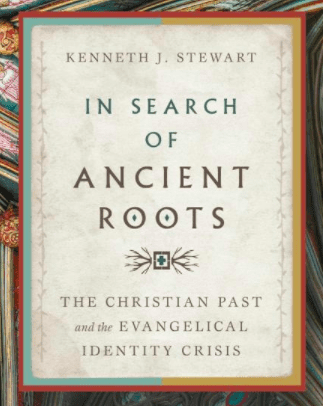 Tuesday morning Scot linked an article in the Chronicle of Higher Education Screening Out Introverts by William Pannapacker. The article is a comment on a new book by Susan Cain Quiet: The Power of Introverts in a World That Can’t Stop Talking. From the publisher’s description:
Tuesday morning Scot linked an article in the Chronicle of Higher Education Screening Out Introverts by William Pannapacker. The article is a comment on a new book by Susan Cain Quiet: The Power of Introverts in a World That Can’t Stop Talking. From the publisher’s description:
Taking the reader on a journey from Dale Carnegie’s birthplace to Harvard Business School, from a Tony Robbins seminar to an evangelical megachurch, Susan Cain charts the rise of the Extrovert Ideal in the twentieth century and explores its far-reaching effects. … She questions the dominant values of American business culture, where forced collaboration can stand in the way of innovation, and where the leadership potential of introverts is often overlooked.
The megachurch Cain refers to in her book is Saddleback, founded and led by Rick Warren. Ch. 2 The Myth of Charismatic Leadership begins with a discussion of Tony Robbins followed by a section on The Harvard Business School and the pros and cons of quick, assertive, charismatic leadership vs quiet methodical decision making. In the last section of the chapter Cain recounts a visit to Saddleback accompanied by Adam McHugh author of Introverts in the Church: Finding Our Place in an Extroverted Culture.
Since services are just about to start, there is little time to chat. … We head to the main Worship Center where Pastor Warren is about to preach.
… I can’t help but think of Tony Robbins’s “Unleash the Power Within” seminar. Did Tony base his program on megachurches like Saddleback, I wonder, or is it the other way around?
“Good morning, everybody!” beams Skip, who then urges us to greet those seated near us.(p. 67-68)
The megachurch culture, worship form, and values sets up an extroverted atmosphere. Leaders must be extroverts, there is little place for contemplation, conversation (not small talk – real conversation), and deep thinking. Everything is smiles and pleasantries and generalities with a vague avoidance of anything that may get too familiar. It is something like a cross between a trip to Disney World and your local shopping mall.
Is extroversion a virtue or merely a personality trait?
Should extroversion be a trait we value in church leadership?
Susan Cain goes on and relates more of her visit to Saddleback:
Like Tony Robbins, Pastor Warren seems truly well-meaning: he’s created this vast Saddleback ecosystem out of nothing, and he’s done good works around the world. But at the same time I can see how hard it must be, inside this world of Luau worship and Jumbotron prayer, for Saddleback’s introverts to feel good about themselves. As the service wears on, I feel the same sense of alienation that McHugh has described. Events like this don’t give me the sense of oneness others seem to enjoy. … (p. 68)
Cain describes how McHugh expresses admiration for Saddleback, the many of good things they have done – including reaching out and bringing people into the church. But continues on quoting him:
“It sets up an extroverted atmosphere that can be difficult for introverts like me,” he explains. “Sometimes I feel like I’m going through the motions. The outward enthusiasm and passion that seems to be part and parcel of Saddleback’s culture doesn’t feel natural. Not that introverts can’t be eager and enthusiastic, but were not as overtly expressive as extroverts.” (p. 69)
The extroverted atmosphere isn’t limited to hand-shaking and coffee shops, but permeates the very structure of the service itself – “there was no emphasis on quiet, liturgy, ritual, things that give you space for contemplation.” There is also no emphasis on connection, belonging, family, or community within the worship service. The “myth of charismatic leadership” (Cain’s term) and the success (as measured by attendance) of this culture within the evangelicalism has given rise to a tidal wave of change within the evangelical church. Surely God must be behind the success mustn’t he be? Cain is pretty blunt:
Saddleback also has one more thing in common with Harvard Business School: its debt to – and propagation of – the Culture of Personality. (p. 64)
Cain uses Saddleback as an example of a larger trend as she discusses the influence of the Extrovert Ideal in American society in general. Saddleback is not unique within evangelicalism. She could have chosen any of a number of other churches of a range of sizes. This not the place to bash Warren or Saddleback. God has worked through Warren and Saddleback and the other megachurches that have arisen in the last 30 years or so (Willow Creek, North Point, The Village Church and many more). The gospel is preached and taught in these churches as it is preached and taught in smaller churches and other forms of church.
But it does lead to some questions. The fingers of the Extrovert Ideal and the Culture of Personality permeate our society deeply … and these are seen in many places in many ways. Pannapacker, in his article in The Chronicle of Higher Education, concludes:
Should academe be concerned that it loses many of its introverted graduate students? Do they not have something to contribute? Does selecting for extroverts favor a cult of charismatic leadership: a star system? Is Cain correct in her view that a profession that sorts out introverts selects for unwarranted enthusiasms for, say, the latest theories, technologies, and institutional practices without considering the consequences? Does it foster a winner-take-all system in which compassion and sensitivity have no place?
The same questions can be asked about the church. The evangelical church has changed dramatically, or so it seems to me, over the last 30 years. The values for leadership have changed, the meaning of the local church has changed, and the form of worship has changed. The Extrovert Ideal is a good descriptor for many of these changes – even true when the leader does not identify as an extrovert.
Does selecting for extroverts favor a cult of charismatic leadership: a star system?
Should we be concerned that we lose thoughtful introverted leadership?
Is there pressure on pastors to live up to the Extrovert Ideal?
If you wish to contact me directly you may do so at rjs4mail[at]att.net
If interested you can subscribe to a full text feed of my posts at Musings on Science and Theology.











